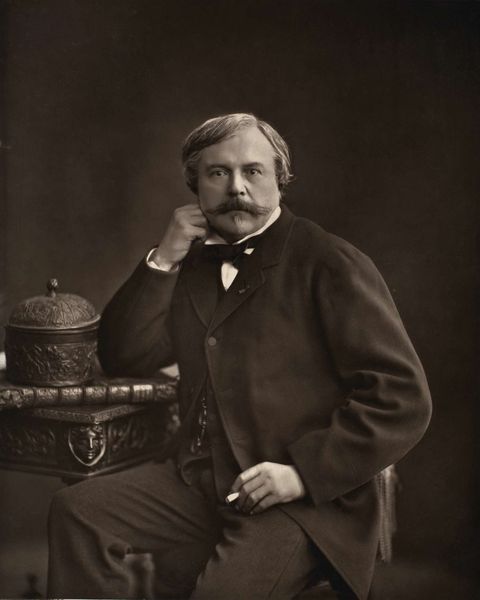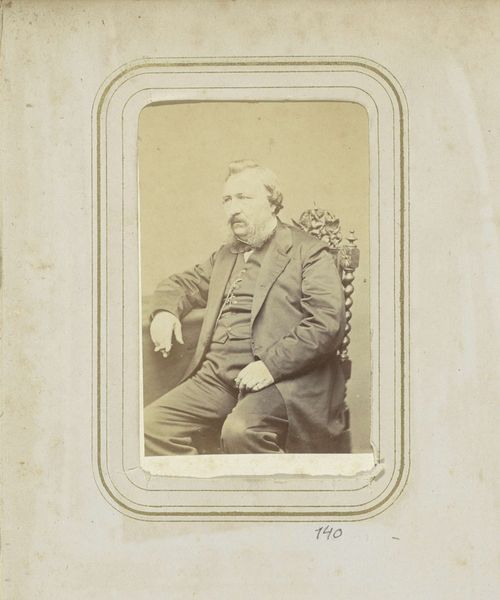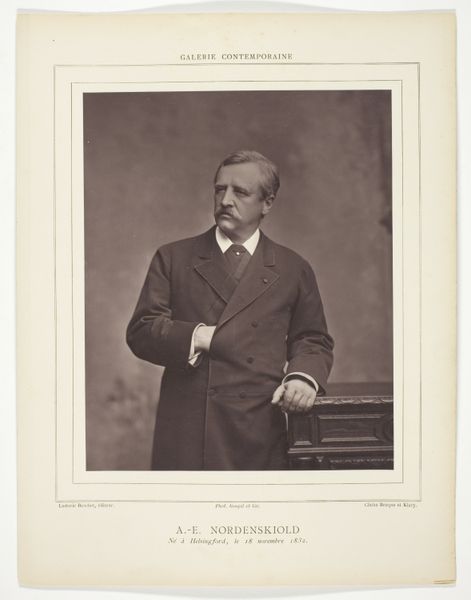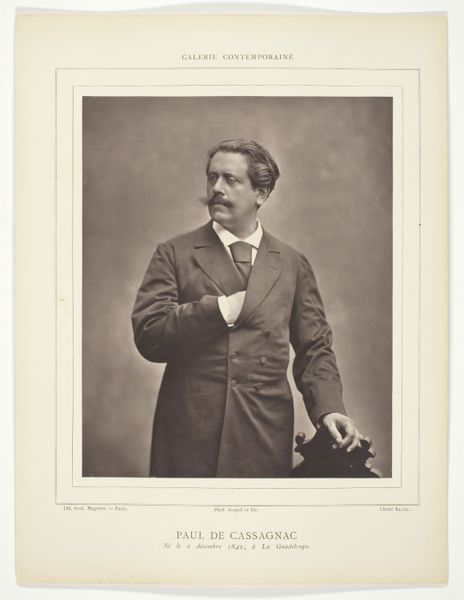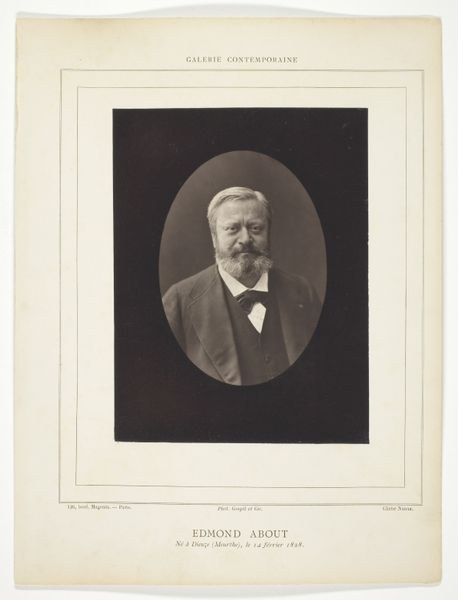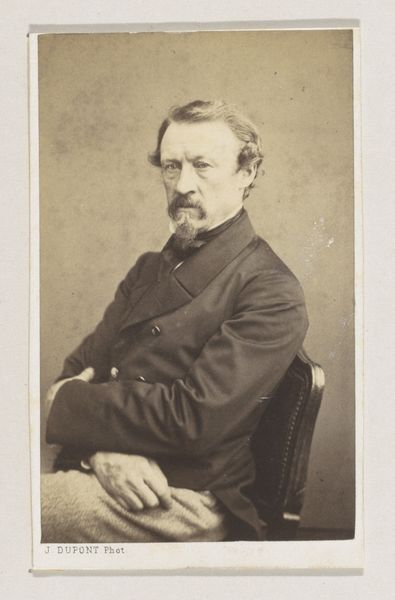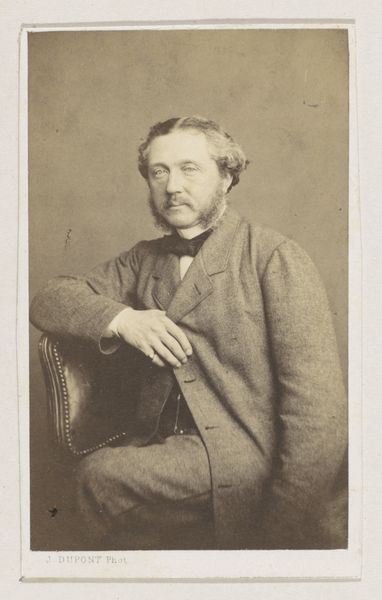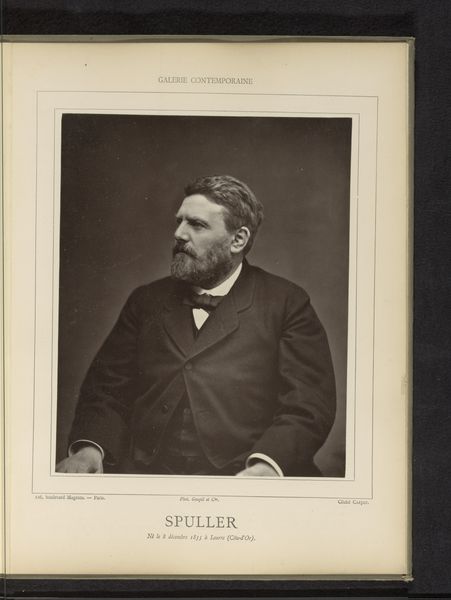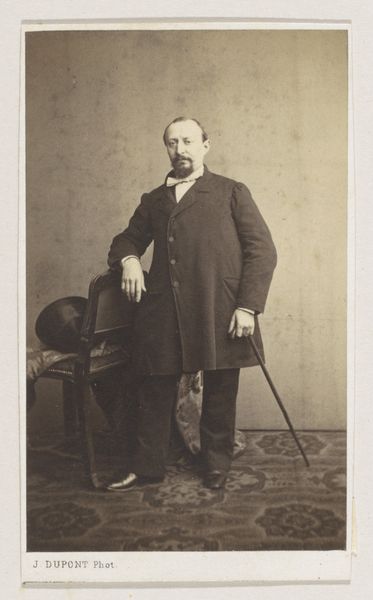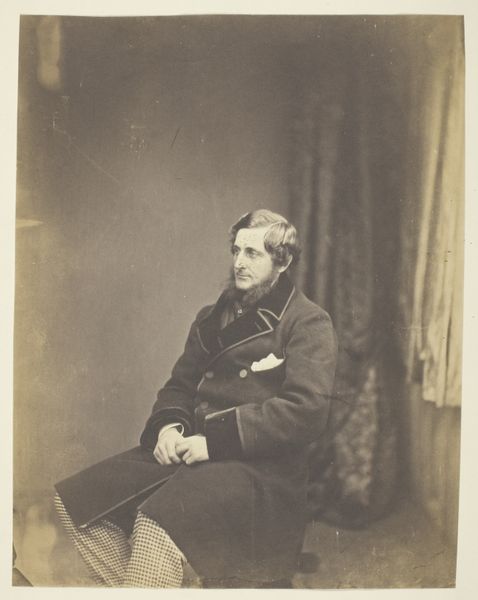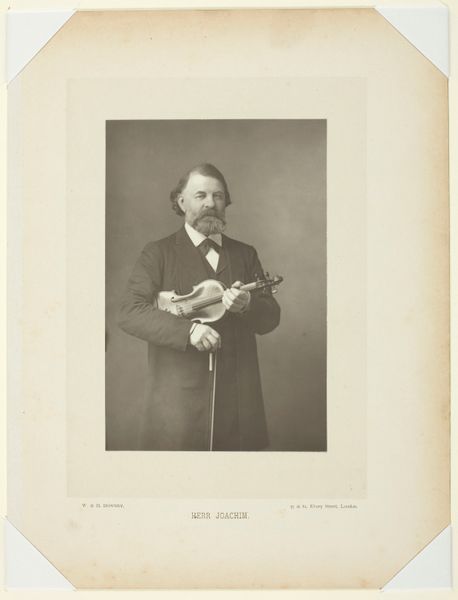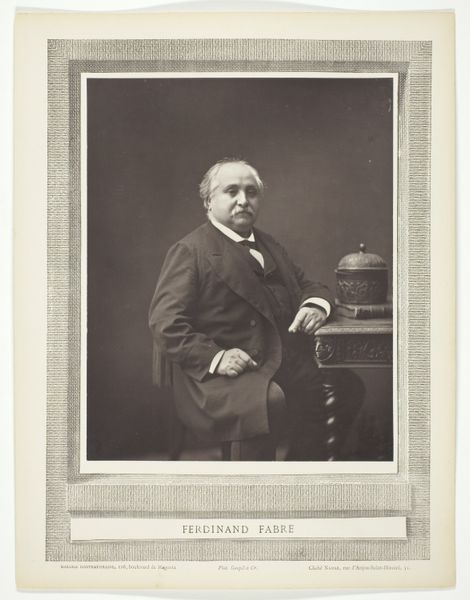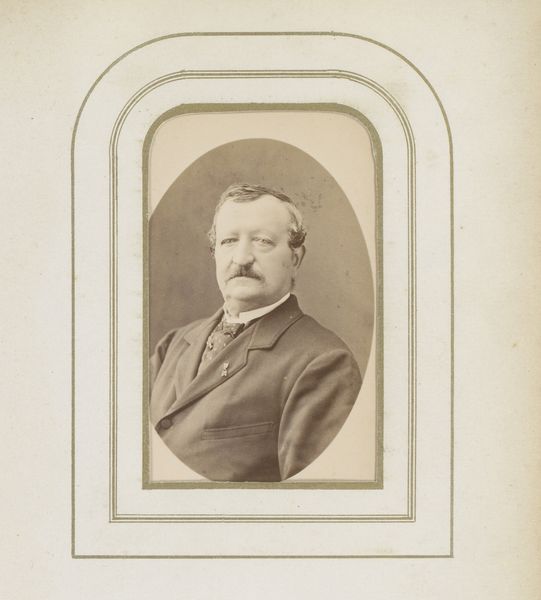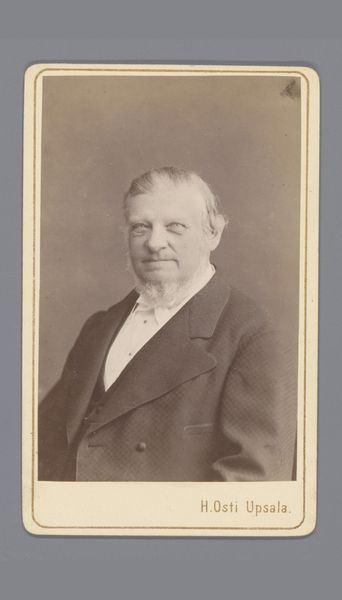
Edmond de Goncourt (French writer and critic, 1822-1896) c. 1853 - 1876
0:00
0:00
print, paper, photography, gelatin-silver-print
#
portrait
#
print photography
#
16_19th-century
# print
#
french
#
paper
#
archive photography
#
photography
#
historical photography
#
gelatin-silver-print
#
france
#
realism
Dimensions: 23.8 × 19.2 cm (image/paper); 34.2 × 26 cm (mount)
Copyright: Public Domain
Curator: Here we have Nadar's portrait of Edmond de Goncourt, the French writer and critic. It's a gelatin silver print dating from somewhere between 1853 and 1876, now held here at the Art Institute of Chicago. Editor: He looks pensive, doesn’t he? The way he's leaning, his expression. It gives the impression of someone deep in thought, perhaps crafting a scathing review. Curator: Absolutely, Nadar has really captured his essence. Goncourt was, after all, a significant figure in shaping literary taste of the time. This image functions as a carefully constructed statement of intellectual authority. Editor: Do you think Nadar was making any comments about class through this portrait? Is it significant to showcase Goncourt, who came from an aristocratic family with its emphasis on cultural refinement and legacy, with elements of wealth? Curator: It is essential to consider how photographic portraits during this era functioned within the existing power dynamics of class and artistic circles. Displaying intellectual elites contributes to their cultural capital but also subtly reinforces the social hierarchy of the time. What I find interesting is that photography, at that time, was accessible and how it intersected those elite circles. Editor: I suppose the performativity of his public persona interests me. It appears that Nadar’s portrait of Goncourt goes beyond mere representation, it encapsulates an era. He used to promote artistic genius back in the day. Curator: Exactly. Looking closely, one appreciates how Nadar manipulated light and shadow to emphasize certain aspects of Goncourt’s face, the prominent moustache, and his intense eyes. All reinforce a persona of critical discernment and artistic sensibility. Editor: It's a very knowing look, like he has seen too much, or understands more than he lets on. This image freezes a moment, it reminds me of Roland Barthes writings about photography and how it is inextricably linked with death, loss. Curator: A compelling way to consider it. We have moved through Goncourt, through his image, back to our own considerations of portraiture today. The political impact of art never stops evolving. Editor: Agreed, it shows us how even still, photographic portraiture is very impactful when talking about how someone is remembered today.
Comments
No comments
Be the first to comment and join the conversation on the ultimate creative platform.
